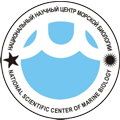 |
Laboratory of Cytotechnology
Scientific Head: Andrei Victorovich Boroda, Cand. Sci. Biol., has managed the Laboratory since 2023.
Main fields of research
- Development of technologies for stem cell induction in vitro for cells of marine organisms and for differentiation of these cells into a functionally active well-defined specific cell type. The production of bioactive substances in vitro may become an alternative to the chemical synthesis or marine aquaculture but only if the cells in culture possess a high growth potential.
- Searching of optimal cryoprotectants and development of new technologies of cryopreservation for sea animal cells at ultra-low temperatures.
Approaches and methods used
The laboratory uses modern biochemical, cytological and molecular biological methods of research - marine invertebrate cell cultures, the methods of developmental biology, the molecular-genetic methods (DNA and RNA extraction, PCR, RT PCR, sequencing of individual DNA sections, cloning), the microscopy methods, including cryomicroscopy, the methods of immunochemistry followed by confocal microscopy, the chromatography methods (thin-layer and gas-liquid), mass spectrometry of organic compounds.
Range of organisms and objects under study; geography of research
Many problems of marine biotechnology cannot be approached without continuous cell lines from sea animals. The objects of the laboratory's research are embryos and larvae; sex, embryonic and somatic cells of bivalves, echinoderms and crustaceans, as well as cells and tissues of marine mammals (from Russian waters). In addition, eight out of ten species of marine microalgae from Peter the Great Bay of the Sea of ??Japan/East Sea (diatoms, green, red and golden unicellular algae) were successfully restored after cryopreservation, including five species that had not previously been frozen.
Laboratory instrument base
The studies are carried out using a sterile room equipped with laminar cabinets, a carbon dioxide incubator (for mammalian cells), a climate chamber (for marine invertebrate cells) and an inverted microscope with a phase contrast system, a flow cytometer for fast and accurate analysis of the cell state, a software freezer for the controlled cryopreservation of biological material of marine aquatic organisms, as well as a complex of equipment of the central laboratory for electron microscopy of the NSCMB FEB RAS. In addition, the laboratory research involves the required equipment from other institutes of the Far Eastern Branch of the Russian Academy of Sciences.
Information provided by the senior researcher A.V. Boroda.
| Contacts: |
|
Palchevskogo str. 17 |
|
Vladivostok, Russia, 690041 |
|
Phone: +7 (423) 2310905 |
|
Fax: +7 (423) 2310900 |

